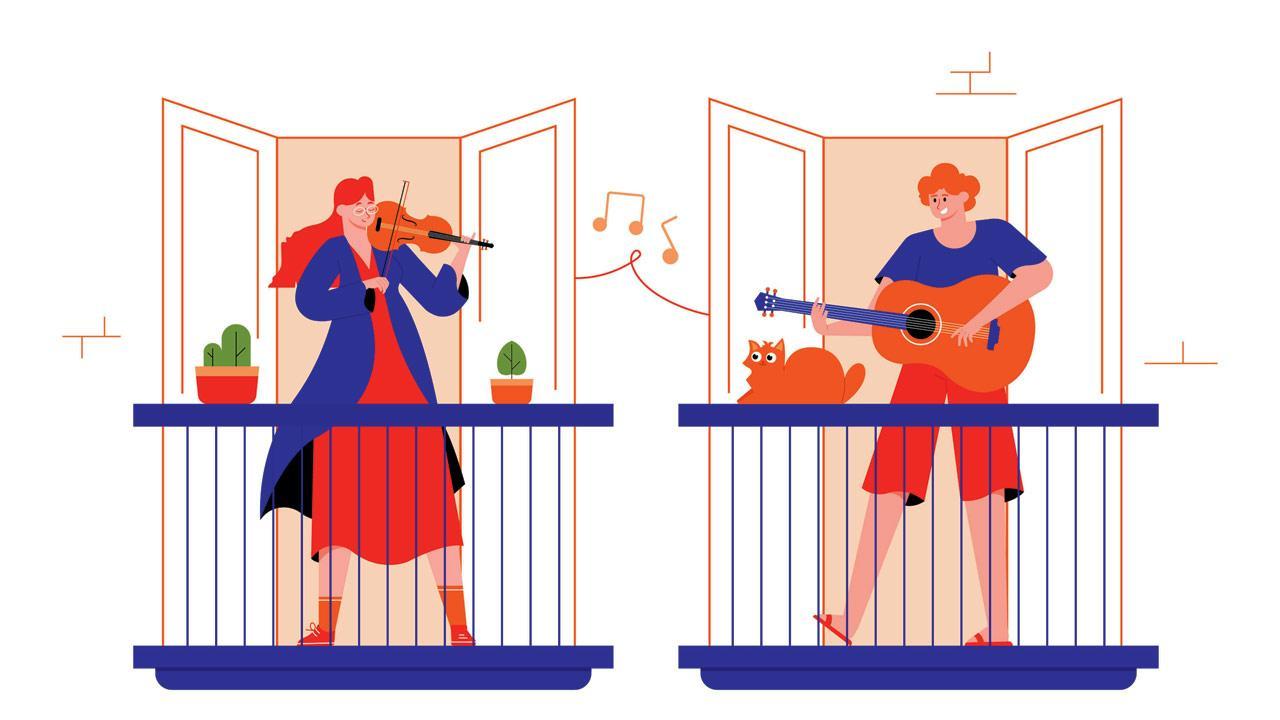We need several reset buttons in a post-pandemic world, including one for the careers we think matter the most

Ultimately, the people who saved this year from complete ruin were artists, healthcare workers, entertainers, teachers and grocery store attendants. Representation pic/Getty Images
 The virus that occupied headlines for much of 2020 inadvertently diverted attention from a more dangerous pandemic simmering beneath. This less glamorous one involves inequality, which no one likes talking about anymore because escapism is now a global pastime. Still, one has to have lived under a rock over the past 12 months to not notice a widening gap between the haves and have nots.
The virus that occupied headlines for much of 2020 inadvertently diverted attention from a more dangerous pandemic simmering beneath. This less glamorous one involves inequality, which no one likes talking about anymore because escapism is now a global pastime. Still, one has to have lived under a rock over the past 12 months to not notice a widening gap between the haves and have nots.
ADVERTISEMENT
In April, the International Monetary Fund warned anyone who was listening that inequality would rise, based on predictions that the world economy would contract by 4.9 per cent in 2020. Two months later, the World Bank pitched in with its own good news about poverty rates going up for the first time since 1998, pushing a staggering 71 million people into extreme poverty. If those zeroes make little sense to us, it is only because of the precarious nature of our existence, where the loss of a job is enough to push us into the kind of debt it takes decades to climb out of.
Meanwhile, on the other side of that wretched picture, a small group of people succinctly referred to as the super-rich saw their fortunes rise by more than a quarter. Their already obnoxiously large bank accounts swelled to a reported 10.2 trillion dollars, even as everyone else lost sleep wondering how they would afford rent. It doesn't take much intelligence to acknowledge that something is rotten in the way our world is being run. How else could a calamity that leaves devastation in its wake for a majority simultaneously reap profits for an increasingly smaller minority?
Unfortunately, it is considered bad form to attack capitalism. It is frowned upon because to say this out loud automatically makes us communists, and a danger to society.
We have been encouraged to embrace it for decades now. We can never question big business entities. Our politicians tell us that to oppose the stripping of public assets for private gain is anti-national. It's why we allow them to damage our environment, cut down trees for malls, sell national parks to the highest bidders, and force us to choose private healthcare even if we can't afford it. We are asked to applaud these developments as part of a plan to build smart cities because to point out that there is nothing smart about them makes us liable to be pulled up for sedition.
Scientists believe the pandemic can have a positive impact on the world, if only as a wake-up call that pushes governments to do things they have been promising to do for years.
I like to think it can be used as a personal warning too, jogging us out of our complacency into making changes to the way we live. It may be time to get rid of a few rose-tinted glasses, examine the validity of our priorities, and question what we have been encouraged to believe is the best way to live.
Everything we were trained to believe about corporate life turned out to be a lie in 2020. A lot of the careers we thought were critical to the way things functioned proved to be unimportant and hollow. We were told the concept of working from home would never work, but it did. We were told a 9-to-11 job was the only way to get ahead in corporate India, but it isn't. We were told people with MBAs alone could run companies, but they are the ones responsible for every economic failure we have been forced to reckon with.
Ultimately, the people who saved this year from complete ruin were artists, healthcare workers, entertainers, teachers, and grocery store attendants, all of whom put their lives on the line to make our own existence bearable. They are the ones still doing the heavy lifting, while overpaid CEOs stay home to watch Netflix.
Think about jobs that command the highest salaries at your workplace. Compare those salaries with the amount of actual work put in during the lockdown. Also, think about jobs that personally affected you in a positive manner and ask yourself if corporate India compensates its workforce fairly.
I hope COVID-19 forces us to recalibrate the importance we have traditionally assigned to careers and roles that ultimately add little value to the world. Those who come after us must be encouraged to take up professions that matter, not jobs that generate nothing but large savings in bank accounts. I think it's safe to assume we have enough lawyers, engineers, bankers, and marketing managers.
When he isn't ranting about all things Mumbai, Lindsay Pereira can be almost sweet. He tweets @lindsaypereira. Send your feedback to mailbag@mid-day.com
The views expressed in this column are the individual's and don't represent those of the paper
 Subscribe today by clicking the link and stay updated with the latest news!" Click here!
Subscribe today by clicking the link and stay updated with the latest news!" Click here!






